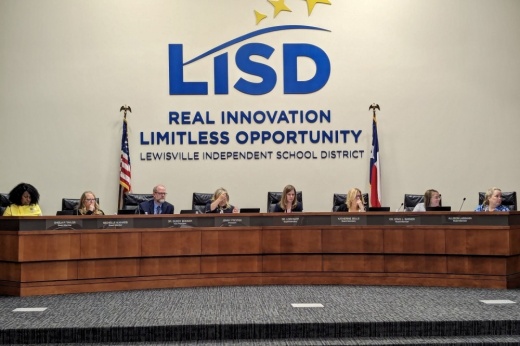District officials are working through the 88th Legislature’s inaction regarding school funding. The state allots school districts $6,160 per student who meets the average daily attendance threshold, an amount that has not been increased since 2019 despite a rise in inflation, Superintendent Lori Rapp said.
The state won’t broach the issue again until the 89th Legislature convenes in 2025, which will mark seven years without an increase to the basic allotment. Rapp presented next year’s budget projections to the board of trustees April 8.
“The money is there, but because the Legislature did not appropriate it we don't get it, and so it just sits while kids sit in classrooms that are underfunded,” board President Jenny Proznik said.
The details
Inflation has increased 22% since 2019. To keep up with this rate, the state would need to increase the funding allotment to $7,515 per student, Executive Director of Finance Amber Lasseigne said.
The district also predicts an enrollment decrease of 800 students going into the next school year, which means the amount recaptured by the state will also increase, Rapp said.
If a school district collects more state revenue than allotted, the state collects the excess revenue and distributes funds to other school districts. When a district’s enrollment decreases, this affects the per student allotment formula in that the district will have received money for students no longer enrolled, and therefore the amount the state can reclaim increases.
The district estimates losing about $14.1 million in recapture in 2025, Rapp said.
More details
The budget shortfall for fiscal year 2023-24 is about $17.6 million. Through ongoing campus and central office staff reductions as well as other mitigation measures, the district will have lowered the budget shortfall by about $2 million in FY 2024-25, Rapp said.
If the district didn’t have to increase recapture and inflationary categories, such as fuel and utilities by $3 million and $1.5 million, respectively, the FY 2024-25 shortfall would be around $10.8 million, almost $7 million lower than this fiscal year's shortfall, Rapp said.
As LISD continues to identify areas for reduction, technology, facilities, and learning and teaching departments will be affected the most, Rapp said.
“When people want to see a ticket closed out fast on their iPad or a work order closed out fast, it will be impacted because of the budget reductions,” she said.
What they’re saying
“We have no control over funding, but there is someone who does and who could help us, and that’s the Texas Legislature, " Proznik said.





